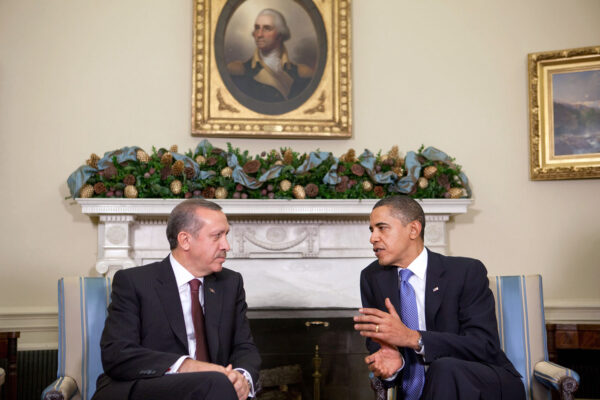
When Turkey started attacking Islamic State, or ISIS, militants in northern Syria last week, it also targeted areas controlled by Kurdish fighters who have been among the effective in keeping the fanatical Islamists at bay. This has put the West in the awkward position of supporting two enemies of the Islamic State who are also at war with each other.
Britain’s The Telegraph newspaper finds this dilemma unbearable and accuses the West of stabbing the Kurds in the back.
For the past year, Western leaders have feted the Kurds of northern Iraq, praising them as one of the few forces gutsy enough to face down the death cult of ISIS.
Now, those leaders turn a blind eye, or even worse give an active nod, to attacks on northern Iraqi Kurds by the Turkish air force.
Heroes one minute; fair game for massacre the next. In the long list of Western betrayals of former allies overseas, this one feels especially grotesque.
The accusation is not entirely without merit. Turkey’s NATO allies do say they support its military action against both Islamist and Kurdish insurgents in Syria — if not, as The Telegraph claims, in Iraq.
But the West is doing little, if anything, to help. The United States are reluctant to aid the Turks in carving out what they claim would be a humanitarian “safe zone” in the northwest of Syria but what looks like an attempt to block the country’s Kurds from linking up the various territories they control. The proposed safe zone would replace the one area along the Turkish-Syrian border that is currently in the hands of the Islamic State.
The Turks worry that if the Syrian Kurds were to occupy the whole frontier and link up their territory with that of the Kurdistan Regional Government in Iraq, it might inspire the country’s own sizable Kurdish minority to push for independence as well.
The Policy Tensor points out that Turkey has not declared war on the Kurds as a whole, though. It is targeting militants of the Kurdistan Workers’ Party, or PKK.
The Turkish government has launched an attack on the PKK in response to the killing of two police officers as well as a Turkish serviceman at the hands of the PKK. The suicide attack in which 32 people were killed and nearly 104 others were injured has been attributed to a man linked to ISIS: The Turks are just using the response to the ISIS attack as a cover for crushing the PKK.
The PKK justifies its resumption of violence against the Turkish state as retaliation for the recent suicide bombing in Suruç, a mainly Kurdish town close to the Syrian border. It says Turkey allowed the Islamic State — which was responsible for the attack — to go unchecked because it did battle with two of its foes: Kurdish separatists and the Syrian regime of President Bashar al-Assad.
To The Telegraph, this makes no difference.
It still adds up to an act of treachery against the people who have done most — more than all our politicians put together — to curb the spread of ISIS and halt its imposition of unforgiving, misogynistic, Christophobic rule on even more of the Middle East.
Perhaps. But this overlooks the quandary Western leaders find themselves in. They had long urged Turkey to get involved in the fight against the Islamic State. Now that it finally is, they can’t very well tell it to pull back because it is simultaneously bombing targets of the PKK — which they agree is a terrorist organization.
It would also be a mistake to see the Kurds — the world’s largest stateless nation — as a homogenous whole.
Turkey’s largest pro-Kurdish party, the People’s Democratic Party, and the Kurdistan Regional Government in Iraq have both called on the PKK to lay down its weapons.
A Turkish offensive against the Kurds in Iraq seems unlikely when the government in Ankara previously defied in counterpart in Baghdad to trade oil with them. An attempt to crush Turkish nationalism across the border would mark a reversal of policy and probably involve Turkey in a long and deadly struggle, one that could only make its own Kurdish problem.
Even if the Turks were to try, The Policy Tensor argues that their NATO allies would not tolerate it.
Nothing so far suggests that the Americans would accept a Turkish assault on the [Kurdistan Regional Government]; which has been under Anglo-American protection since 1991
Western allies imposed a no-fly zone over the north of Iraq that year, after vanquishing Saddam Hussein in the Gulf War. By shielding them from Hussein’s regime, the United States gave the Kurds the chance to build up state institutions: a parliament, government departments of their own and separate intelligence and military services. It now operates as a de facto republic with virtually no interference from Baghdad.
An independent Kurdistan, at least in Iraq and possibly in Syria, now seems inevitable. Turkey’s concern is preventing such a new state from encompassing its Kurdish areas and that’s something Western countries are wary of as well.
